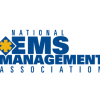When Mona Thompson says “thank you,” you feel great. She leans into the words, looks you in the eye and shows she really means it. Maybe that’s why members of Kidder County Ambulance, the volunteer service she directs in Steele, N.D., stay around at a time when most other volunteer services are losing people right and left. Her service is a powerful example of the link between leadership and organizational success. But as I’ve come to know Mona, I’ve seen that gratitude is not just something she offers others; it is an important part of her management and life strategy.
Of course, most of us recognize that expressing gratitude to employees often and sincerely is an important management practice. People need and want to feel appreciated, especially when they are performing work that routinely confronts difficult and tragic moments. Expressions of gratitude provide a mirror for people to see their work, and themselves, in a positive light. These expressions are also energizing: When we are reminded that our efforts are appreciated, we are motivated to do more.
Yet beyond the immediate effects that saying “thank you” has on employees, a practice of gratitude may be a key ingredient in the making of a leader whom people truly want to follow.
Social psychologists Robert Emmons and Michael McCullough have found that people who regularly practice gratitude are more optimistic about the future, feel better about their lives and even do 1.5 more hours of exercise per week. They found that being actively grateful mitigates and prevents stress and releases positive endorphins that boost health and energy. It also appears that grateful people fall asleep faster, sleep with fewer interruptions and wake more rested.
At its core, gratitude is an optimistic activity. When I asked Mona about being grateful, she said it is her way of focusing herself and her organization on the positive rather than the negative. While pessimism is much more prevalent than optimism in our society, Martin Seligman, former president of the American Psychological Association and author of Learned Optimism, points out that it is the optimists who consistently achieve more and live happier lives. There may be truth in the adage that things turn out best for those who make the best of the way things turn out. Gratitude is not the practice of having one’s head in the clouds but a methodology for keeping an eye out for what is best.
Gratitude actually keeps our feet anchored in reality. One of Mona’s most compelling characteristics is her humility. Rather than gathering recognition and attention for herself, she frequently praises the successes of those around her. In his book Thanks! How the New Science of Gratitude Can Make You Happier, Emmons writes, “Gratitude implies humility—a recognition that we could not be who we are or where we are in life without the contributions of others.” It is difficult to be puffed up when you are actively noticing and acknowledging things beyond yourself.
In his book How to Want What You Have, Timothy Miller describes the practice of gratitude as “the intention to think and behave in such a way that welcomes the experience of gratitude, regardless of circumstances or previous experiences. You practice gratitude by carefully building a home in your heart to accommodate it.”
Recently, during a visit to Mona’s ambulance service, I caught a glimpse of how one builds a home to accommodate gratitude. Inscribed in large letters on a prominent wall in the station training room is the following message: “Volunteers do not necessarily have the time, they just have the heart.”
In this New Year, I am committing to opening my heart to more gratitude. What about you?
John Becknell is the founding publisher of Best Practices. You can reach him at jmbecknell@gmail.com.












